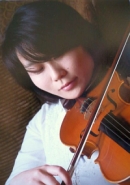Finding power and privilege as a violinist and music therapist
DOI:
https://doi.org/10.15845/voices.v10i2.162Keywords:
power and privilege, critical self-reflection, collaboratingAbstract
Power and privilege is often addressed in social work literature and is taught as a part of social work training in Canada. The purpose of this training is to enhance self-awareness and interpersonal skills, and to promote the practice of critical self-reflection. Critical self-reflection not only includes one's examination of thoughts, feelings, and behaviors, but also one's understanding of how these are shaped by personal history, social location, attitudes, and values related to diversity and difference (Mandell, 2007). Not all practices in the field of social work can be directly applied to music therapy practice. However, critical self-reflection as introduced in social work may be adapted for music therapists in realizing their own power and privilege in their work. This paper applies theoretical and conceptual ideas of power and privilege in music-centered music therapy practice through the author's personal critical reflection.

Downloads
Published
How to Cite
Issue
Section
License
Articles published prior to 2019 are subject to the following license, see: https://voices.no/index.php/voices/copyright

